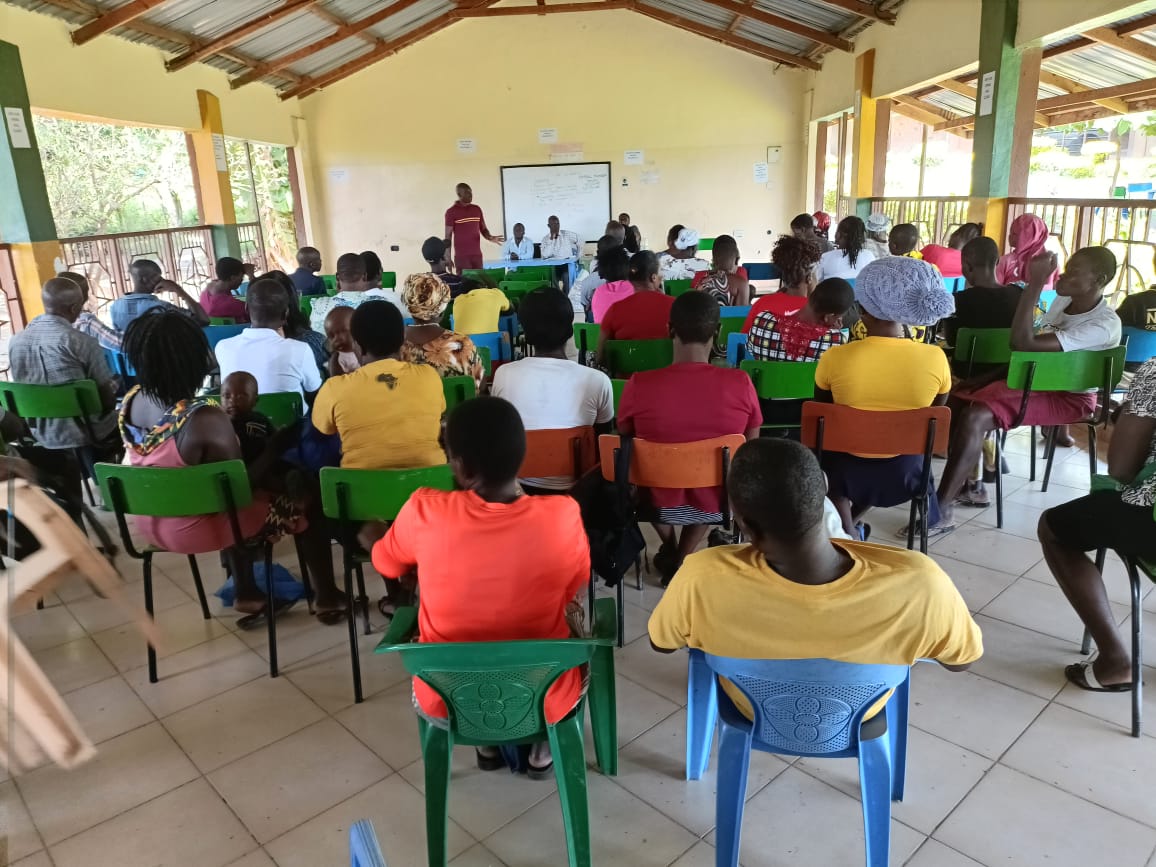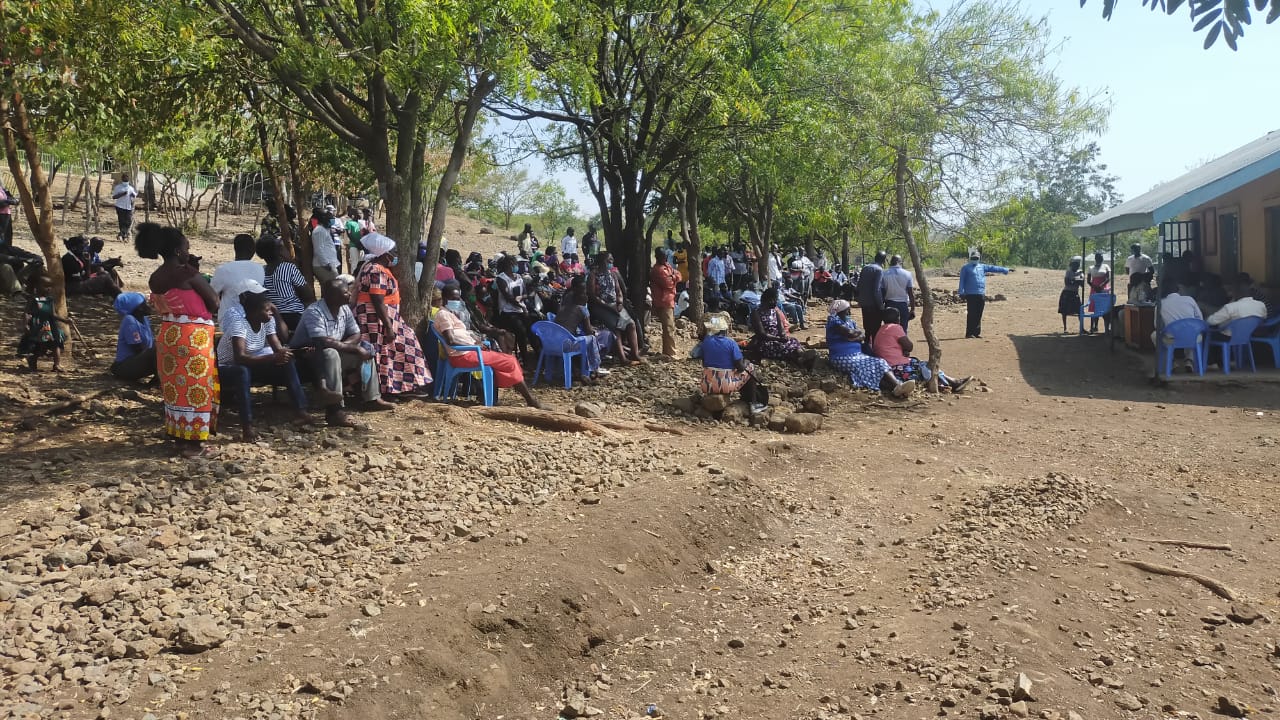fAMILIES MATTER


The Families Matter Program (FMP) is an
evidence-based HIV prevention intervention for parents, guardians, and other
primary caregivers (hereafter referred to as “parents/caregivers”) of
preadolescents ages 9–14 years and adolescents 15-19 years. FMP targets
parents/caregivers of the younger age band (9–14-year-olds/preadolescents) and
FMP2 targets parents/caregivers of the adolescents in the older age band (15–19-year old19-year-olds the overall program goals of FMP and FMP2 are the same.
Each version of the program aims to enhance protective parenting practices that
are associated with risk avoidance and risk reduction among youth and promote
parent-child communication about sex and sexual risk reduction. Henceforth,
“FMP” will be used, unless programmatic distinctions need to be made. FMP
consists of 7 sessions (about 3 hours each) delivered by two, trained and
certified facilitators (one male, one female) over the course of 7 weeks.
Groups are composed of 18- 30 parents/caregivers. Adult learning principles and
participatory methods are used to engage parents/caregivers.
FMP
intervention sessions focus on the following objectives:
· Encouraging general parenting practices
(relationship-building, monitoring, positive reinforcement, and general
communication) that increase the likelihood that children will not engage in
risky sexual behaviors;
· Improving
parents/caregivers’ ability to communicate effectively with their children about
sex-related topics and sexual risk reduction;
· Raising awareness about the sexual risks
faced by many adolescents, including risks of child sexual abuse (CSA) and
gender-based violence (GBV);
· Increasing awareness and understanding of
the specific challenges faced by adolescents living with HIV (ALHIV) –
including stigma, disclosure, ART adherence and engaging in healthy
relationships – and to help family and community members strengthen their
skills to provide ALHIV with effective guidance and support related to these
issues.
How Does FMP Help
Families & Communities?
FMP works in many different ways to strengthen and support families in order to raise healthy children and help children reach their life goals. The ultimate goal of FMP is to reduce sexual risk behavior among adolescents – including delaying onset of sexual debut – by giving parents/caregivers the knowledge, skills, comfort, and confidence to deliver primary prevention messages to their children and to create a protective environment. More effective parental communication and positive parenting practices such as monitoring and supervision can help to delay their children’s sexual behavior and increase their children’s protective behaviors as they get older. The skills and knowledge parents develop during FMP sessions do not only have a one-time impact, but can be applied throughout the child’s life, with the opportunity to tailor information to children’s needs and questions, further building an ongoing relationship between the parent/caregiver and the child. FMP helps parents create a protective environment for their children by eliciting reflections related to harmful gender norms and GBV risks that children face, both as potential victims and as potential perpetrators, as well as addressing pressures from peers, partners, and adults. .
Additionally, FMP helps to model healthy relationships based on mutual respect and communication and encourages parents/caregivers to challenge community norms which contribute to GBV. With regard to physical and emotional violence, FMP takes a number of steps to work with parents/caregivers to model alternatives to physical and emotional violence.
For example, FMP includes activities and discussions with the following purposes:
· To encourage parents/caregivers to identify what challenges & pressures their children face
· To reframe discipline as being less about punishment and more about building a strong relationship to keep children safe
· To reflect on negative examples of parent-child interaction in audios featuring emotional violence and threat of physical violence
· To role-play positive communication and focus on problem-solving.
FMP is a values-neutral program and therefore supports parents/caregivers to conveying their own values and expectations about sexual behavior to their children and to provide their children with important messages related to HIV, sexually transmitted infections (STI), pregnancy prevention, and GBV/CSA. By helping parents/caregivers explore their own sexual values and overcome communication barriers – such as embarrassment or discomfort, and lack of knowledge, skills and confidence – FMP works to enhance parenting skills and practices, including parental monitoring, positive reinforcement, and building a strong parent-child relationship. FMP also provides parents/caregivers with important information about the risks their children face with regard to CSA and the role that they play in protecting them from such abuse. 3 Although typically only one parent/caregiver is engaged in FMP directly, the sphere of influence goes beyond that one individual. Each parent/caregiver is connected to other children, friends, family, colleagues, etc. and can initiate conversations related to difficult topics such as GBV/CSA and HIV-related stigma. As parents/caregivers graduate from FMP, they are often excited to share this new knowledge with others in their communities and practice what they have learned. These indirect impacts expand beyond the size of FMP groups and have the potential to change norms regarding gender, health seeking behaviors, and stigma, at a community level. Additionally, as youth practice what they have discussed with and learned from their parents, the positive effects and behaviors can also transfer to other youth in their social circles and relationships. Creating a supportive and protective environment for youth in which they can make healthy decisions regarding their sexual health, can help youth achieve their life goals and either help them remain HIV free or practice self-care if they are living with HIV
